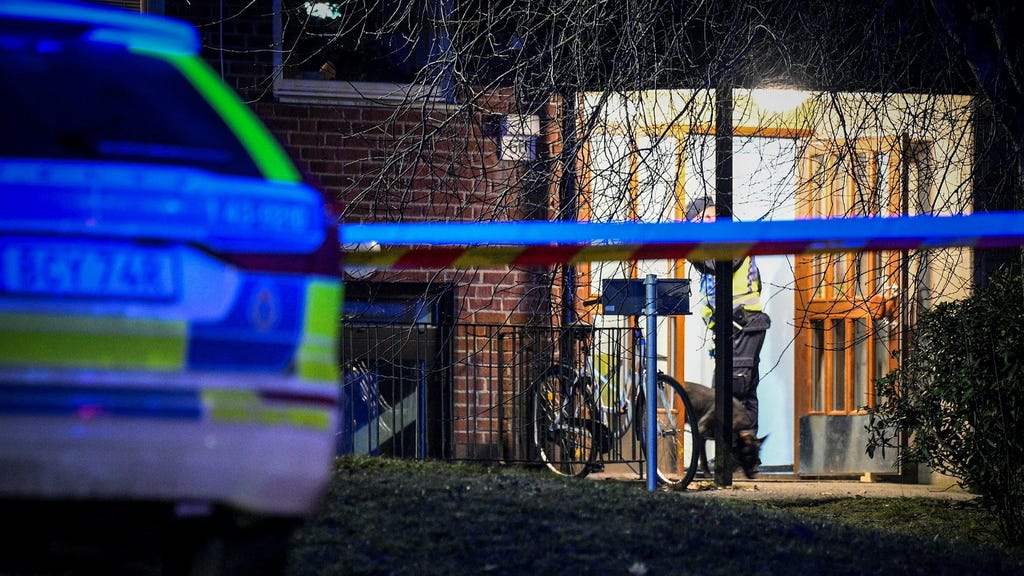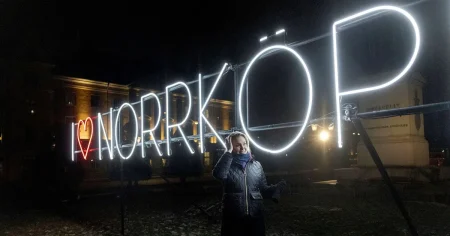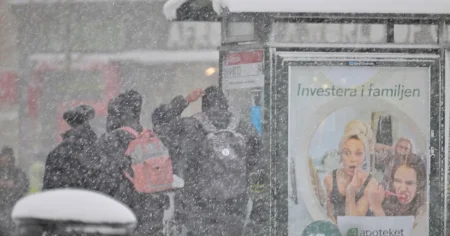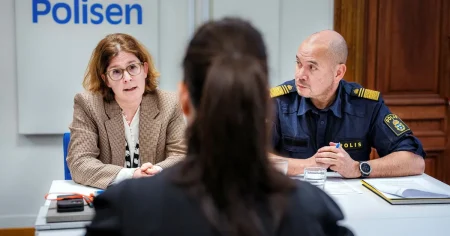The investigation into the suspected double homicide in Nässjö, Sweden, has reached an impasse despite a substantial body of evidence. The primary suspect, a 35-year-old individual subject to an international arrest warrant, is believed to have fled to the Gaza Strip, a territory embroiled in conflict, significantly complicating the pursuit of justice. This presents a formidable obstacle for Swedish authorities, who are limited in their ability to operate within the volatile and politically complex environment of Gaza. The chief prosecutor, Emma Harrius, has stated that active investigation in the case will be suspended, acknowledging the practical limitations imposed by the suspect’s likely location. This leaves the families of the victims in a painful limbo, with the prospect of closure and accountability seemingly distant.
The challenges facing the investigation are multifaceted. Gaza, under the control of Hamas, has a strained relationship with many international bodies, including Sweden. This political tension hampers cooperation and information sharing, making it extremely difficult for Swedish authorities to conduct any meaningful investigation within the territory. Extradition treaties, often relied upon in international criminal cases, are unlikely to be applicable or enforceable in this scenario. The prevailing security situation in Gaza, characterized by recurrent conflict and instability, further complicates matters. Deploying investigators to such an environment would pose significant safety risks and logistical hurdles, while relying on local authorities for assistance is fraught with political and practical difficulties.
The decision to suspend active investigation underscores the frustrating reality of the case. While the available evidence might point strongly towards the 35-year-old suspect, the practicalities of apprehending and prosecuting an individual who has sought refuge in a conflict zone are effectively insurmountable. This leaves the Swedish authorities in a difficult position. Continuing the investigation at full capacity would likely yield little progress while consuming valuable resources. Suspending the investigation, however, can be perceived as abandoning the pursuit of justice for the victims and their families.
The case also highlights the increasing complexities of international criminal investigations in an increasingly interconnected world. While globalization has fostered greater cooperation between nations in many spheres, it also presents new challenges for law enforcement. The ease with which individuals can cross borders and seek refuge in territories with weak governance or ongoing conflict creates significant hurdles for pursuing justice across international boundaries. The Nässjö case serves as a stark reminder of these challenges and the limitations of international legal frameworks in addressing them.
The families of the victims are now left grappling with the uncertain future of the case. The suspension of the active investigation, while understandable given the circumstances, undoubtedly compounds their grief and frustration. The prospect of obtaining justice for their loved ones remains distant, hampered by the complexities of international law enforcement and the political realities of the Gaza Strip. Their hope likely rests on a future change in circumstances, perhaps a shift in the political landscape of Gaza or the emergence of new evidence that could facilitate the investigation.
In conclusion, the suspected double homicide in Nässjö presents a complex legal and political conundrum. While a strong evidentiary basis seemingly exists against the prime suspect, their presumed location in the conflict-ridden Gaza Strip creates a seemingly insurmountable barrier to justice. The Swedish authorities, facing the practical impossibilities of pursuing the investigation in such a volatile environment, have made the difficult decision to suspend active efforts. This leaves the families of the victims in a painful state of uncertainty, highlighting the challenges of international law enforcement in a world grappling with conflict and geopolitical complexities. The case serves as a stark reminder of the limitations of justice systems in the face of international borders and political instability.














